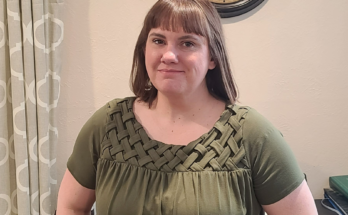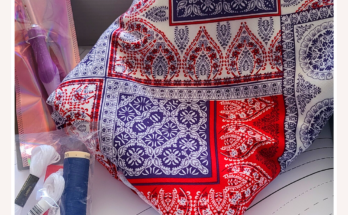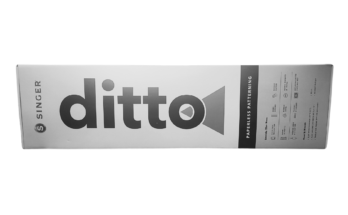Disclosure: This post may contain affiliate links. I earn a small commission when you click a link and make a purchase. Thanks for supporting SewingSociety.com!
I recently wrote a post about 6 businesses you can start if you know how to sew. I wanted to dive deeper into the idea of starting a sewing machine repair business because technicians are in high demand, and you can make a lot of money fixing sewing machines.
Contents
Why You Should Start a Sewing Machine Repair Business
According to SewingMachinesInstute.com, the average sewing machine service appointment takes about two hours and costs $110. That means you can make over $50 per hour as a sewing machine repair technician. Plus, there are 35,000,000 active sewing machine users in the USA alone, and they will all need their sewing machines serviced or repaired at some point.
Why not be the person that fixes their sewing machine for them?
The demand for sewing machine repair technicians is high and growing… You can learn how to fix sewing machines, embroidery machines, quilting machines, and sergers, and open a repair business in your area.
Learn to Fix Sewing Machines
Before you can start a sewing machine repair business, you must know how to service sewing machines and replace broken parts. These are skills you can learn from reading, watching videos, and hands-on experience. You probably already have some sewing machine troubleshooting skills if you’re reading this post.
If you want to learn more, one of the best places to become a certified sewing machine repair technician is the Fix Sewing Machines Institute. (This is not an affiliate link. I just think Fix Sewing Machines Institute is awesome.) They can really help you learn how to fix sewing machines and start a sewing machine repair business. I recommend the company.
David Trumble has taught thousands of students to become successful sewing machine repair technicians at the Fix Sewing Machines Institute. He hosts live classes in Texas, as well as correspondence courses. Upon completion of the course, students receive a diploma certification as a sewing machine repair technician. This qualifies graduates to work as a technician for sewing machine dealerships or to run their own sewing machine repair business.
Become a Certified Technician in as Many Sewing Machine Brands as You Can
You don’t technically need certification to fix sewing machines as a technician or to run a sewing machine repair business. However, certification will help you get more customers. It shows that you have the necessary skills and customers will trust your repair business more.
If you want to start a sewing machine repair business, you really should invest the time and money to get certified. Become a certified repair technician for as many sewing machine brands as you can — Babylock, Brother, Singer, Juki, Janome, Pfaff, Bernina, Viking / Husqvarna, and White. All sewing machine brands have similar working parts and the Fix Sewing Machines Institute covers most of them.
Find a Location to Run Your Business
You don’t need to rent a location or build a store to run a sewing machine repair business, although you can if that’s what you want. Sewing machine repair is the perfect home business, especially if you’re willing to make house calls. You only need a workspace to perform your sewing machine repairs and a small storage space. You don’t need to store sewing machine parts because you can order them as you need them.
Create a Website for Your Sewing Machine Repair Business
You’ll also want to create a website to market your sewing machine repair shop locally. One of the hardest things about starting a sewing machine repair business is getting customers. A business website is essential to success nowadays.
Here are few things people search for when they need sewing machine repairs:
- Places that fix sewing machines near me
- Sewing machine repair in my area
- Sewing machine repair business
- Sewing machine service in <YOUR CITY>
If your sewing machine repair business is not on the internet, how will customers find you? Word of mouth and newspaper ads will only take you so far.
You don’t have to pay someone thousands of dollars to create a website for you. It’s easier than ever to create a website, and you don’t need to have advanced programming skills if you choose a company like Bluehost. You can get a FREE domain name and hosting for $3.95 per month. CLICK HERE to sign up through my affiliate link and get promotional pricing for a business website.
How Much Money Can You Make with a Sewing Machine Repair Business?
If you simply want to fix sewing machines as a technician for a repair company, you can’t expect to make more than $50,000 per year. However, if you start your own sewing machine repair company, you have uncapped earning potential. You can even grow to the point where you need to hire technicians to help you cover all your work.
Additionally, some sewing machine repair companies become dealers themselves. They buy used sewing machines and resell them after fixing them up. This is something you can do whenever you’re looking to fill time. It’s an amazing business model to follow.
Good luck! If you need help getting started, check out the Fix Sewing Machines Institute.
Share this post on Pinterest!
You might also like: 20+ Common Sewing Machine Problems and How to Solve Them






My mother’s sewing machine has been having issues since last December. My mother really wants to make a baby quilt for my oldest sister’s first baby who will be born this July. It is nice to know that I should get a technician to help get the machine repaired.
With only an elementary school education, Garrett Morgan began his career as a sewing-machine mechanic. He went on to patent several inventions, including an improved sewing machine and traffic signal, a hair-straightening product, and a respiratory device that would later provide the blueprint for WWI gas masks. The inventor died on July 27, 1963, in Cleveland, Ohio. Born in Paris, Kentucky, on March 4, 1877, Garrett Morgan was the seventh of 11 children. His mother, Elizabeth Reed, was of Indian and African descent, and the daughter of a Baptist minister. His father, Sydney, a formerly enslaved person freed in 1863, was the son of John Hunt Morgan, a Confederate colonel. Morgan s mixed-race heritage would play a part in his business dealings as an adult.